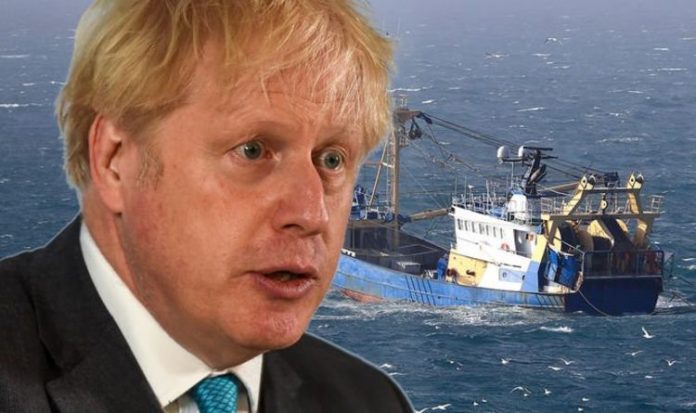The UK has lowered its demands for a greater share of the catch in UK waters after Brexit, Michel Barnier said on Wednesday. As he briefed ambassadors and members of the European Parliament, the bloc’s chief Brexit negotiator announced the UK had signalled that it could accept 60 percent of the value of stocks from British seas from January 1, down from the 80 percent London had originally called for. Mr Barnier had offered to return up to 18 percent of the value of stocks, which was rejected.
Negotiators are tackling the complicated issue of the more than 100 shared fish stocks as the talks enter what diplomats have called “a make or break phase”.
Fishing nations such as France, Denmark, the Netherlands, Belgium and Spain fear Mr Barnier may cave too easily to British demands as talks enter their endgame.
Paris insists the UK red line of annual fishing negotiations is unacceptable.
As tensions rise and the clock ticks down, a Government email, which claimed the UK could struggle to patrol its own fishing waters after a no deal Brexit, has recently resurfaced.
A memo written by Defra officials in August 2019, accidentally sent to the BBC, said there was “a lot of uncertainty” over whether Britain had the resources to police its seas.
At the time of its publication, Prime Minister Boris Johnson was negotiating a new withdrawal agreement with the bloc.
The former Mayor of London was willing to leave with no deal if necessary to get Brexit over the line by October 31.
The lobby group Fishing for Leave described the Government warning as “defeatist”.
They said: “Defra’s strange document that has been accidentally sent to the press can only be met with incredulous dismay.
“If this is looked at objectively it’s difficult to see how Britain couldn’t make a semi-decent fist of protecting our waters.
“It’s high risk for EU vessels to fish far into UK waters where they’d really have their trousers round their ankles.
JUST IN: France called on ‘lying’ UK politicians to drop Brexit
“Does Defra not rate our proud Royal Navy or is Defra/Whitehall looking for excuses to be soft to not upset the EU? On past form one wouldn’t be surprised.”
Only two months later, Mr Johnson released details about the steps he intended to take to ensure UK waters are controlled and policed under a no deal scenario.
In October 2019, the Government published a 159-page “No Deal Readiness” report, prepared by Cabinet Office Minister Michael Gove, which set out tariffs and extra administration costs for importing and exporting goods, the impact on travelling to the EU on holiday and changes to rules like data protection.
In the proposals, Downing Street announced that the Government had strengthened and greatly increased its ability to control and enforce UK waters.
DON’T MISS:
Vote Leave insiders explain why PM won’t sell out fishing rights [EXCLUSIVE]
Michael Gove dropped bid for instant return of fisheries control [REVEALED]
No deal projections are ‘overblown and misleading’ [ANALYSIS]
The report reads: “Specifically compared to 2018/2019 in England, the Government has:
“Increased the amount of surface surveillance (i.e. ships at sea) seven fold.
“Doubled the number of warranted marine enforcement officers available for fisheries protection.”
The National Federation of Fishermen’s Organisations welcomed the measures.







